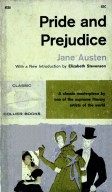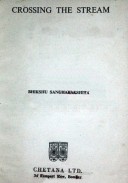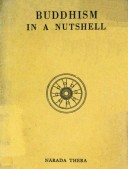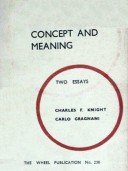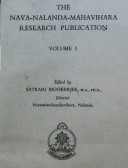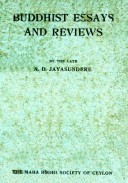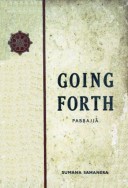Tìm Sách
Sách tiếng Anh-English >> Pride & Prejudice
Thông tin tra cứu
- Tên sách : Pride & Prejudice
- Tác giả : Jane Austen
- Dịch giả :
- Ngôn ngữ : Anh
- Số trang : 314
- Nhà xuất bản : Collier Books-NewYork
- Năm xuất bản : 1962
- Phân loại : Sách tiếng Anh-English
- MCB : 1210000006265
- OPAC :
- Tóm tắt :
INTRODUCTION
First of all there is the oddity and piquancy of such a book as Pride and Prejudice coming out of the life of Jane Austen. Here was a young girl, not quite twenty-one, beginning to write a book (not her first attempt) in the midst of the small but busy village activity every well-bred clergyman’s daughter was supposed to concern herself with in the England of the year 1796. The story of the book, a novel of course, concerned an impudent, high-spirited girl of the same age as the writer, living very much her kind of life. The plot was that major concern of her own circle: how would such a girl marry? What could have been expected was pathos, awkwardness, a pushing of false feeling or unlikeliness of development. Instead, the daughter of George Austen, the rector of Steventon, Hampshire—a place tucked far off the good coach roads of George Ill’s England— wrote a delightful, sparkling masterpiece. It was fresh as clear spring water, as artful, without showing itself to be such, as the music of the period. How could such a thing happen?
Of course it was too much to expect that the book would be recognized at once for what it was by Jane Austen’s contemporaries. The publisher to whom, in 1797, the writer sent the manuscript (which she then called “First Impressions”), sent it back at once to the obscure address in Hampshire.
The rector’s daughter laid aside the rejected manuscript and, because she could not help it, kept on writing in the moments spared from trimming hats, visiting her father’s sick parishioners, walking lightheartedly along the margins of muddy roads, and dancing at the neighborhood balls” She had an unexpected encouragement in her family. They were quick-tempered and quick-witted and came soon to appreciate Jane’s storytelling without expecting her to live among them any differently. The eight children in an informal and rough-and-tumble way had educated each other in thought and feeling as well as in duties and loyalties. The two girls, Cassandra and Jane, were perhaps unusually indulged by a superfluity of brothers, and shared the family schooling more than most girls of the time. They had, with the boys, the benefit of the father’s teaching, for George Austen had pupils in the house in the time spared from his clerical duties.
The family, who so depended upon each other for amusement as well as instruction, was closely knit. Jane and her older sister, Cassandra, were as devoted to each other as could be, and both were proud of their set of energetic brothers, two of whom became sailors and at last admirals in the Royal Navy, the others taking on the functions of various gentlemanly or near-gentlemanly professions—the church, law, land-holding.
Cassandra became engaged to be married, but her fiancé voyaged to the West Indies and died of a fever. She never married. Jane loved perhaps, but kept forever reticent about the fact; it is undeniable that all her stories show a delicate zest for youthful love. The boys left home, the father died, then the mother. Cassandra and Jane, who had shared their parents’ move from Steventon to Bath, and after the father’s death, the mother’s removal to Southampton, came to rest at last under the protection of one of the brothers, a rising gentleman-farmer. He gave them a comfortable cottage at Chawton, near Alton in Hampshire, near his own big house. The two sisters grew older, staying busy in the essentially eventless life of dependent females of their time and place, helping to care for many nephews and nieces, continuing to call and to receive callers and to take part in the blunt good talk of the Regency.
The oddest fact in the well-managed household of the Austen sisters was that Jane continued to write, and that in 1811 she began to be published. Her books appeared anonymously. It would not have been fitting for a clergyman’s daughter to receive the notorious attention caused by publication. Her family, although proud of her, saw no reason to make fewer demands upon her time. Her leisure laid by for writing was sorely bought, and yet she paid for it without complaining or seeming to think that she was a remarkable woman living a remarkable life.
In her own circle Jane Austen was enjoyed. She was even feared by a few for the sharpness of vision which showed in her books, but which she seldom made a display of in private company. She was an excellent friend to children, a good companion to young people, for the most part kind to her contemporaries, and as she grew older perhaps a little stiff about her own emotions and thoughts.
Beyond her provincial circle (one can overstate her sequestration, for there were trips to seaside resorts and to London), she began to be known a little, if not personally and by name. There was even an anticipatory glow of coming fame. Such great men of her time as Walter Scott and Robert Southey savored the particular flavor of the author of Pride and Prejudice, Emma and Mansfield Park and spoke of her to each other or wrote down remarks about her in their diaries. But she never knew.
It is a great argument for the artist as an undownable entity that Jane Austen kept on writing without being asked. Pride in craft, judgment, unsparing wit and humanity were qualities which she poured into the shapes of the slight books which were undemanded except by the life that she observed and the urge that she felt to record and to comment. She continued with wit and courage to live and to write until an obscure ailment pulled her down. She died before she was forty-one, in Winchester, where her sister had taken her to see a physician. She was buried in the cathedral of that city (not in the fields of Steventon or Chawton), genuinely mourned by people who knew her only as Aunt Jane or Miss Austen, a spare, upright lady whose only oddity was a persistent but uninsisted upon habit of writing. She was writing until a few days before her death.
The life and the art were all of a piece, something admirable in consistency and achievement.
The achievement, the remarkable fact of this obscure woman’s artistry became apparent only gradually, but then her reputation swelled and swelled, until today the books about unimportant people of obscure English villages and towns are as happy in their security as Shakespeare’s plays.
Why? And why, particularly, is Pride and Prejudice secure, the continuing favorite of readers in each generation who begin to smile at its first sentence and go on to enjoy its gaiety and suspense with the shameless joy of an addict of thrillers?
There is not much point in retelling in detail the plot of this famous story: how Elizabeth Bennet, the spirited daughter of a modest country gentleman, was surprisingly wooed by Mr. Darcy, a stiff-necked but honorable gentleman of resplendent rank and fortune; how she mistook his character, and he hers; how their family fortunes entangled their relations further, bringing them closer to each other by circumstances which should have driven them apart; and how, at last, as in all Jane Austen’s stories, the most difficult oppositions were overcome by “sense and sensibility.” There is nothing to be said for a leaden paraphrase of the story, for everyone has either read it and can freshly re-read it for the fun there is in it, or can read it for the pure pleasure of following its movement for the first time: its quick beginning, its sure-footed, rapid development, its changes of mood and scene, and the satisfying drama of its general overturn of the prepossessions of the pair of lovers who have to be defeated in their “pride” and “prejudice” to come to terms with each other.
What may be mentioned about the plot is the beauty of its articulation. It has a quality about it that more than one critic has said is musical, even Mozartean—surely the highest praise in musical terms. The writer has told her story with a lightness and wittiness which might seem to some readers to come dangerously close to being frivolous or superficial. Jane Austen’s writing style has encountered the same dangers as Mozart’s musical style. His symphonies, concertos, quartets, arias seem so easy, so clear, so light, that many listeners overlook the profundity and the feeling in them, and prefer another kind of music, the turgid solemnities which say to them: we are serious, we are deep, for are we not painful? Just so with Jane Austen. Certain readers in every generation have conceded the wit to her but have failed to grant the feeling, thinking that only a suffering manner could’ bring emotion to birth.
What must also be mentioned for gentle emphasis is the warmth of feeling allied to the wit. Jane Austen’s books are concerned with real people who have real feelings. The longing or loathing is as genuine as the sharpness of the humor, but appears strangely recessive to those used to excesses of emotion, not to the statement of that quality within the proportion of art.
It takes a special effort for many readers of today to see or feel the delicate strength of Jane Austen. Since her time—the time of the beginning of the Romantic revolution—the Western reader has become accustomed to the expression of feeling without reference or limit, inured to the awe-inspiring exercise of vitality in a void. Her kind of virtue has been rather underestimated through the presence of another dominant mode. Jane Austen’s strength was tempered by pressures of which she was conscious, forces of society which she showed as they were, formidable facts which solitary individuals had to consider in their loving and hating and living. This frame about her characters makes braver then show of quality: how does Elizabeth Bennet dare to be so free with her tongue, or so independent in her choices? The reader appreciates this vivid heroine justly in being made to see what she was up against: her mother’s ideas of marriage, Mr. Collins’s unconscious insult of manner, Lady Catherine de Bourgh’s arrogance, and Mr. Darcy’s very natural pretension to another kind of wife.
Therefore, in Jane Austen’s books small gestures of the spirit count. Within the scale of domestic adventure—the world of love, jealousy, envy, malice, and a very necessary concern about money—where the big events are betrothal or betrayal, there are genuine and stirring conflicts as well as delightful resolutions.
ELIZABETH STEVENSON
 Facebook
Facebook
 Google
Google
 Google+
Google+
